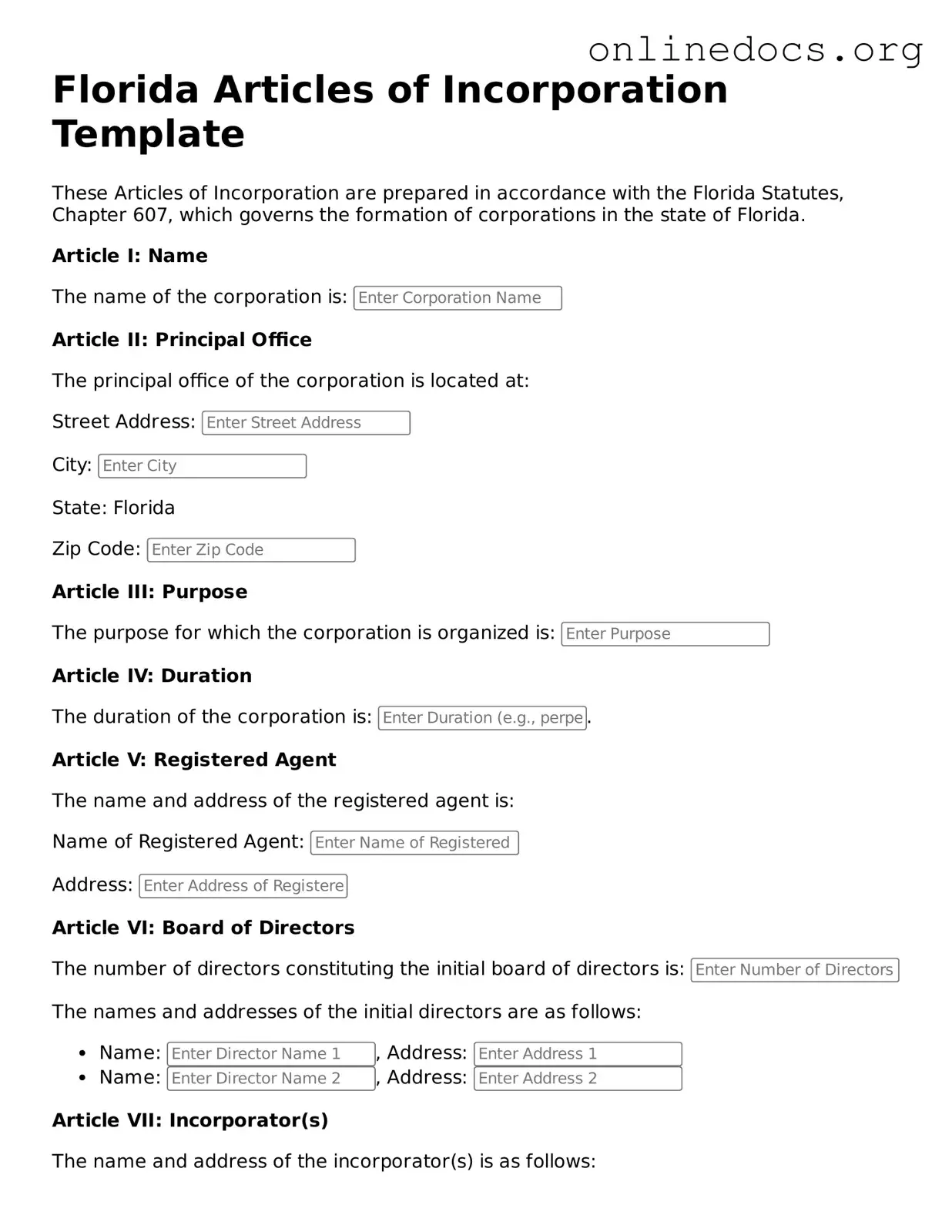The Articles of Incorporation in Florida share similarities with the Certificate of Formation, commonly used in various states. Both documents serve as foundational legal instruments that establish a corporation's existence. They outline essential details such as the corporation's name, purpose, and registered agent. While the terminology may vary, the core function remains the same: to provide a formal declaration to the state that a corporation is being created.
Another comparable document is the Bylaws. Bylaws govern the internal management of a corporation. While the Articles of Incorporation provide a broad overview of the corporation's structure, the Bylaws delve into specifics like the roles of officers, procedures for meetings, and voting rights. Together, these documents ensure both external recognition and internal governance.
The Operating Agreement is similar to the Articles of Incorporation, particularly for Limited Liability Companies (LLCs). This document outlines the management structure and operational procedures of the LLC. While the Articles establish the entity, the Operating Agreement details how it will function. Both documents are critical for legal recognition and operational clarity.
The Partnership Agreement also shares similarities, particularly in how it outlines the relationship between partners. Like the Articles of Incorporation, this document details the structure of the partnership, including roles, responsibilities, and profit-sharing arrangements. Both documents aim to formalize the business relationship and provide a framework for operations.
The Certificate of Good Standing is another related document, although it serves a different purpose. This certificate confirms that a corporation or LLC is legally registered and compliant with state requirements. While the Articles of Incorporation initiate the formation process, the Certificate of Good Standing acts as proof of ongoing compliance and good standing with the state.
The Statement of Information is similar in that it requires corporations to provide updated information about their structure and operations. This document is often filed annually and includes details such as the corporation's address and the names of its officers. Both the Articles of Incorporation and the Statement of Information are essential for maintaining transparency and compliance with state regulations.
The Franchise Tax Registration is another document that relates to the Articles of Incorporation. This registration is often required for corporations operating in states that impose franchise taxes. While the Articles establish the corporation, this registration ensures that the entity is recognized for tax purposes. Both documents play crucial roles in the legal and financial aspects of running a business.
The Business License Application is similar in that it is a prerequisite for operating legally within a jurisdiction. While the Articles of Incorporation establish the legal entity, the business license is necessary for compliance with local regulations. Both documents are essential for ensuring that a business operates within the legal framework of its location.
For individuals looking to validate their vehicle transactions, a straightforward option is to explore the comprehensive Motor Vehicle Bill of Sale form available here. This form is pivotal in outlining the essential transaction details and ensuring a smooth transfer of ownership.
Finally, the Employer Identification Number (EIN) application is related to the Articles of Incorporation as it is often required for tax purposes. The EIN is issued by the IRS and serves as a unique identifier for the business. While the Articles create the corporation, the EIN is necessary for tax reporting and hiring employees. Both documents are vital for the operational and financial aspects of a business.
